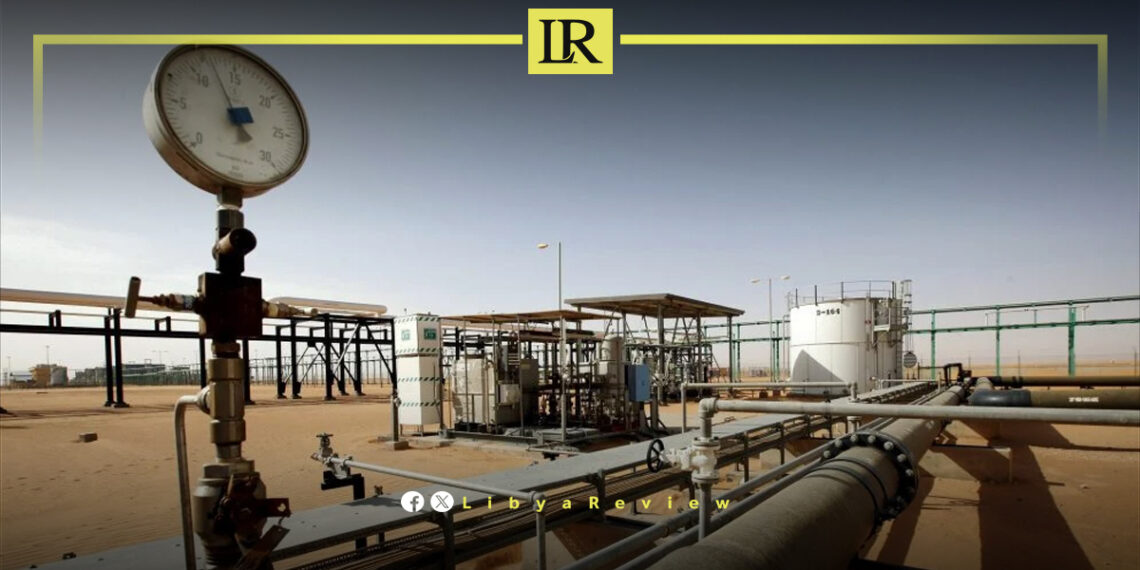International confidence in Libya’s oil sector has diminished following a month-long political crisis that severely disrupted the country’s oil production.
According to a report by Petroleum Economist, Libya’s oil output dropped by more than 80%, as key oil fields and ports were shut down due to escalating tensions between rival political factions.
The crisis, which saw oil production fall from 1.2 million barrels per day (bpd) to around 500,000 bpd, only came to a temporary halt on October 1st with the appointment of Nagy Issa as governor of the Central Bank of Libya. Despite this resolution, the report warns that the deep-rooted political divisions between Libya’s eastern and western regions remain, and Issa’s neutral stance may not be enough to calm ongoing tensions.
The Petroleum Economist report highlighted that Libya’s oil blockades are a frequent and deeply entrenched tactic used by political factions to gain leverage in negotiations. Although the Tripoli-based Government of National Unity (GNU), led by Abdul Hamid Dbaiba, controls oil revenues, the eastern factions, which oversee most of the country’s oil production, often halt operations to demand a greater share of these revenues.
Dbaiba’s government, which was appointed in 2020 through UN-mediated negotiations, was originally tasked with overseeing elections by the end of that year. However, with elections delayed indefinitely, Dbaiba remains in power, largely due to his ability to secure the loyalty of armed groups in Tripoli through generous government spending.
This spending, however, has been limited by the Central Bank, as the former governor, Al Siddik al-Kabir, refused to authorize many of Dbaiba’s financial requests. Although Dbaiba technically controls the oil revenues, the UN Security Council has mandated that the Central Bank acts as the legal custodian of these funds, which are stored in accounts overseas.
Earlier in 2023, al-Kabir warned that Dbeibah’s 2024 spending plan exceeded projected oil revenues by 37%, cautioning that such excessive spending could lead to bankruptcy.
The ongoing political instability in Libya has caused growing concerns among international oil companies. According to Petroleum Economist, the recent Central Bank crisis has raised doubts about Libya’s ability to maintain a stable business environment. The report described Libya’s governance as “erratic and unpredictable,” creating uncertainty for companies looking to invest in the country’s oil industry.
When Dbaiba took office, he emphasized that expanding Libya’s oil sector would be a key priority. In January 2023, Italian energy giant Eni signed an $8 billion deal to develop two offshore gas fields in Libya, marking the largest oil and gas agreement in the country in over two decades. Despite Libya’s potential to increase oil production to 2 million bpd, internal disputes over the control of oil revenues and a massive development fund have hindered progress.
Complicating matters further is the establishment of an independent oil services company in eastern Libya, “Arkino Oil.” Backed by local authorities, Arkino Oil has been selling oil on the global market, a move that has sparked concerns in Tripoli about the eastern factions seeking greater autonomy over oil policies.
The report also noted that instability within Libya’s oil sector escalated in March, when Oil Minister Mohamed Aoun was unexpectedly suspended. Although the charges against him were later dropped, Aoun resigned in July, further contributing to the disarray within the sector. His interim replacement, Khalifa Abdul Sadek, was also suspended in August over allegations of authorizing an irregular payment to a foreign company. While he was reinstated, the instability has continued to disrupt Libya’s oil sector.
While the recent oil blockade was lifted, the report stressed that this is only a temporary solution. Libya’s Central Bank has not released updated financial data, adding to the uncertainty surrounding the country’s economic health. Libya ranks 170th out of 180 countries on Transparency International’s Corruption Perceptions Index, making it one of the least transparent nations in the world.
The report suggested that if Libya continues its current spending patterns, it risks running out of funds. However, Dbeibah is unlikely to reduce spending. Cutting financial support to eastern factions could trigger more oil blockades, while reducing payments to armed groups in Tripoli could lead to his ousting.


